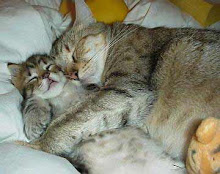
(In this post, I have reprinted my article, originally published in the Ontario Association of Library Technicians /Association des Bibliotechniciens de L'Ontario newsletter, Vol. 30, #1, January 2007)
“Rapid transformations, particularly in the technological sphere of the public world, are more and more profound and more frequent than at any other time in humanity’s history. Whatever occupation we hold, the day-to-day reality of our workplaces is change”. (OCLC Environmental Scan)
I work in a university library in the midst of changes on a groundbreaking, transformational level. If asked what the biggest challenge is in this job, my answer would simply be: Change. Continuous change. Technological change. Copyright and ownership change. Even the tides of social and political change in
To thrive as a Library Technician in an academic library involves constant learning and relearning of theories, technologies, trends and patterns in the library profession. It is never wise to be complacent and accept that what you are doing and thinking today will really apply tomorrow. I have recently completed all the required courses for my Library and Information Technician diploma, but the program has served to only partially prepare me for the work that I do, and the work I will be doing.
Since February 2006, I have had the unique chance to change positions and work as a Library Assistant (in a Reference Department), at the Science and Engineering Library,
By the time you read this article, I will be back in my new position in the largest library on campus: Mills Memorial Library. I am aware that the way I do my job will change, and my tasks will inevitably be adapted and modified continuously to accommodate the changes. There is one known certainty: as the entire landscape of the larger community evolves, it will unfold the way that it does because our mission to meet the needs of users will not change: this is a shared goal of libraries that continues to be valid. In fact, whether we decide to hate or embrace technological giants in our environment such as Google, we can still be assured that “the order and rationality that libraries represent is a necessary and a public good” (OCLC). As library staff, we could all do the profession a favour by reminding everyone more often about the good that libraries do (academic, school, public or special). As library staff, we should always make an effort to become very well-versed in new technology as it relates to our field, and feel confident to enlighten our users with our knowledge.
J.G. Ballard once said that, “science and technology multiply around us. To an increasing extent, they dictate the languages in which we speak and think. Either we use these languages, or we remain mute”. I have found that, while it is certainly important to be able to define and understand all the emerging technological and library lingo, it is even more important to be able to determine what is relevant to our own learning process, and relevant to getting the job done the best way. It is easy to become inundated and overwhelmed with data and forget to see the forest for the trees. (Maybe, in library terminology we could say it is akin to “forgetting to see the library for the books”: our libraries have so many books that there is no longer enough room for people, so I think this is a very valid argument).
Works Consulted / Recommended readings
Dempsey, Lorcan. (2006, April). Libraries and the long tail: some thoughts about libraries in a network age. 12(4). D-Lib magazine. Retrieved
http://www.dlib.org/dlib/april06/dempsey/04dempsey.html
De Rosa, Cathy, Dempsey, Lorcan,
(web version is available at: http://www.oclc.org/reports/escan/introduction/default.htm)
Tam

